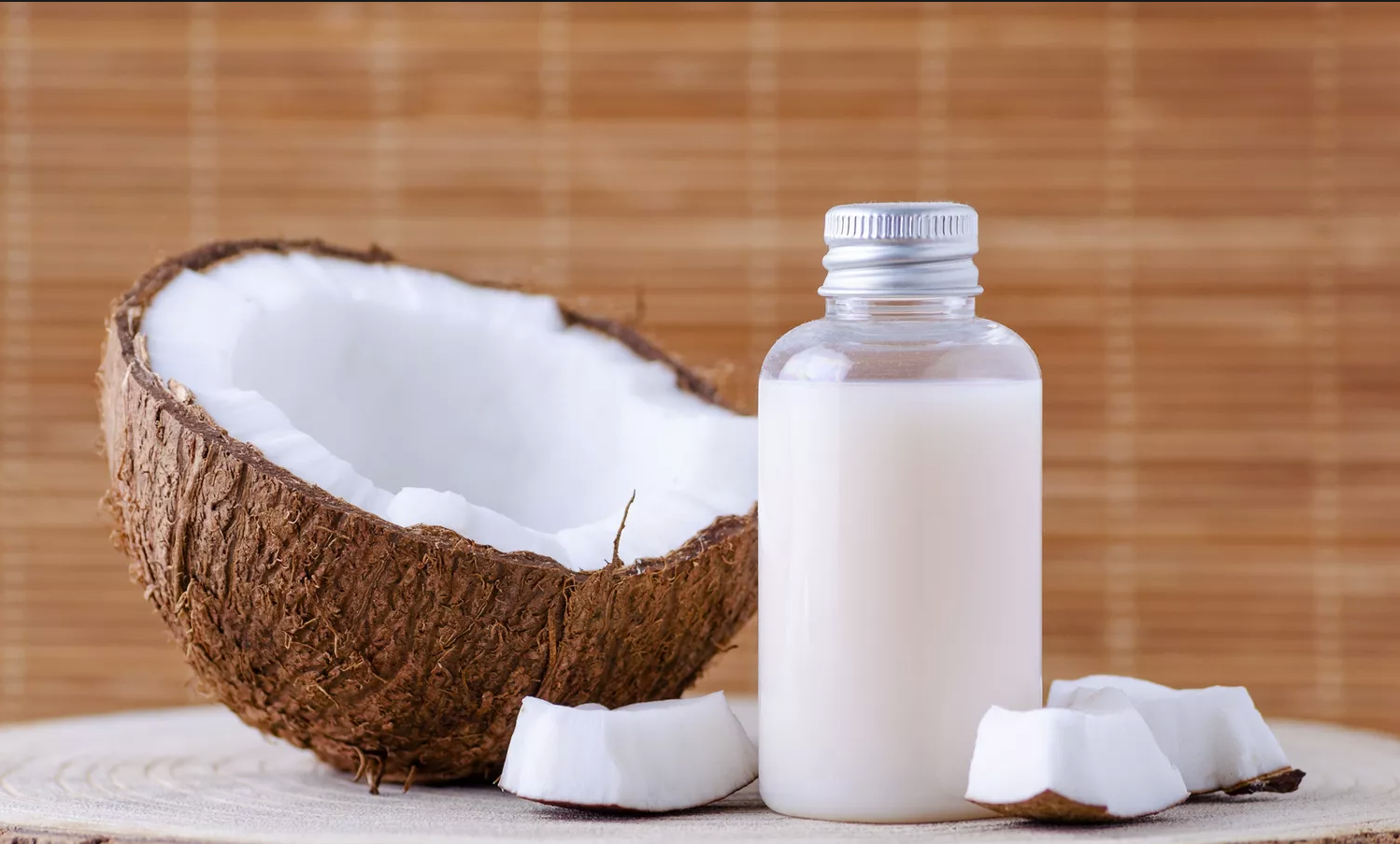Dandruff occurs when excess skin cells flake off the scalp. Some people notice it as white flakes that they see in their hair or on their clothes. Dandruff can also cause itchiness, but if you scratch it, it can cause scalp irritation, which can worsen the condition.
There are a number of remedies for dandruff, including over-the-counter (OTC) and prescription shampoos. Some people prefer to use natural remedies to treat dandruff to avoid chemicals as well as scalp irritation and drying.
Related: What Type of Dandruff Do You Have?
Coconut oil is rich in vitamins and fatty acids. While you might know that you can eat or cook with it, coconut oil is also an alternative skin care product that provides moisture to dry skin, including your scalp.
Is coconut oil effective at treating dandruff? Read on to learn more.

Causes of Dandruff
Dandruff is a common condition and can have several causes. A few of the most common are:
- Malassezia: This yeast-like fungus is a common cause of dandruff.1 The fungus itself is a normal part of the human microbiome (colony of organisms), and it thrives on the oils in skin and hair. But too much Malassezia can lead to scalp dryness and itchiness that is commonly associated with dandruff.
- Seborrheic dermatitis: This skin condition can affect the scalp. Research has found that the condition could be caused by an overgrowth of Malassezia, which is often found in high amounts on the skin of people with seborrheic dermatitis. The condition can affect any part of the body that has oil glands. On the scalp, it can cause the skin to become oily and scaly, and cause itchy, powdery yellow or white flakes.
- Xerosis cutis: This medical term is used to describe abnormally dry skin. It is more common in people who live in cold, dry climates and in older adults. Xerosis cutis may cause dandruff if you are washing your hair too frequently, taking extremely hot showers, or getting prolonged sun exposure, and/or develop dehydration.
When to See a Doctor
Most cases of dandruff are not serious, and you can manage it on your own at home. However, there are some cases where you might need to see a doctor who specializes in the health of your skin (a dermatologist).
You might need to make an appointment with a dermatologist if:
- Home remedies such as coconut oil have not helped.
- You’ve tried over-the-counter (OTC) anti-dandruff shampoos for several weeks and they have not helped.
- Your dandruff is severe and/or your scalp is extremely itchy.
- Your scalp is red, swollen, or has open sores.
- You have a weakened immune system.
Your doctor will examine your scalp to determine what is causing your dandruff, and come up with a treatment plan based on the diagnosis.
How Well Coconut Oil Works
Coconut oil can be used to hydrate the scalp, prevent dandruff, and promote hair growth. Research has shown that it has the potential to offer more than one benefit for people with dandruff.
- Boosting "Good" Bacteria: A 2021 study found that coconut oil can help maintain a healthy fungal scalp microbiome (the colony of bacteria and fungi that keep your scalp healthy).The study also found an increase in the fungus M. globosa, which is associated with a healthy scalp, after coconut oil application. In that same study, coconut oil application significantly reduced the presence of dandruff.
- Reducing Inflammation: Another study found that coconut oil may reduce pain and inflammation, which can help reduce the itchiness and pain that can come with dandruff caused by certain skin conditions, such as seborrheic dermatitis and psoriasis.
- Moisturizing: A 2014 study on people with atopic dermatitis who used coconut oil on their scalp found that coconut oil effectively moisturized the scalp and prevented moisture loss.The fatty acids in coconut oil combat the irritation and flakes associated with dandruff. The lauric acid in coconut oil provides microbial balance properties that help soothe a dry, flaky scalp and rebalance the scalp’s microbiome.

